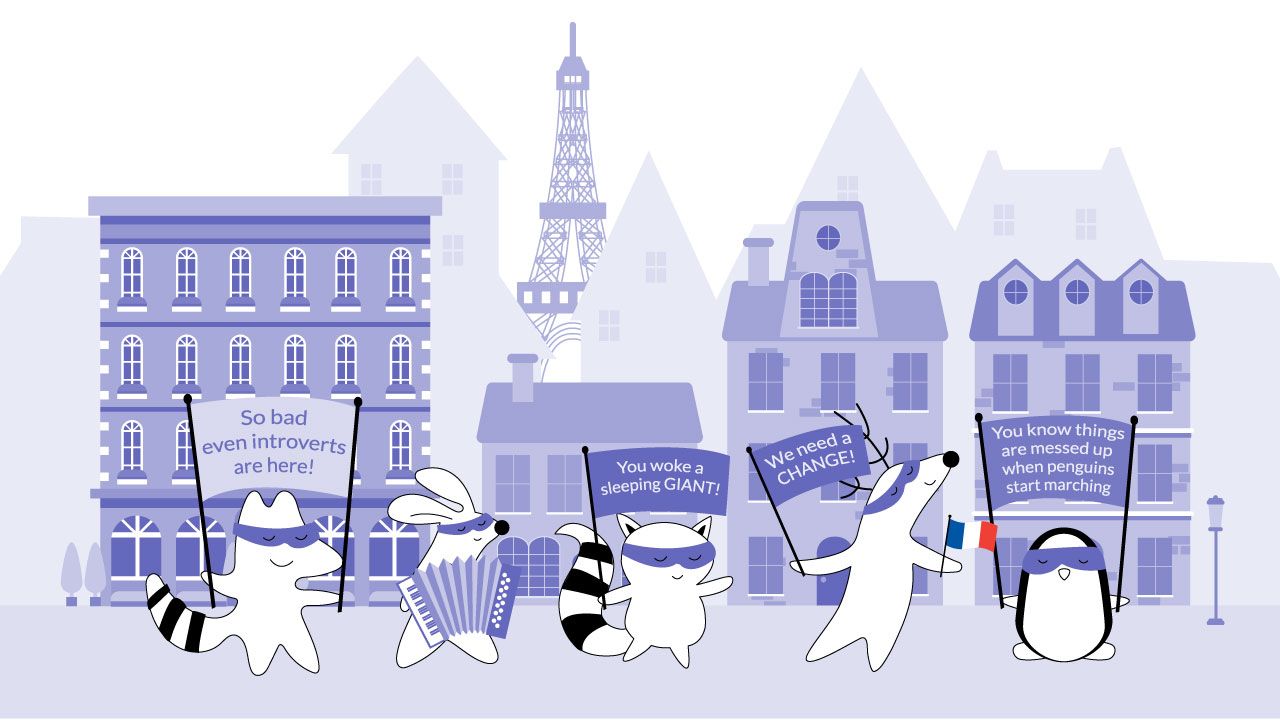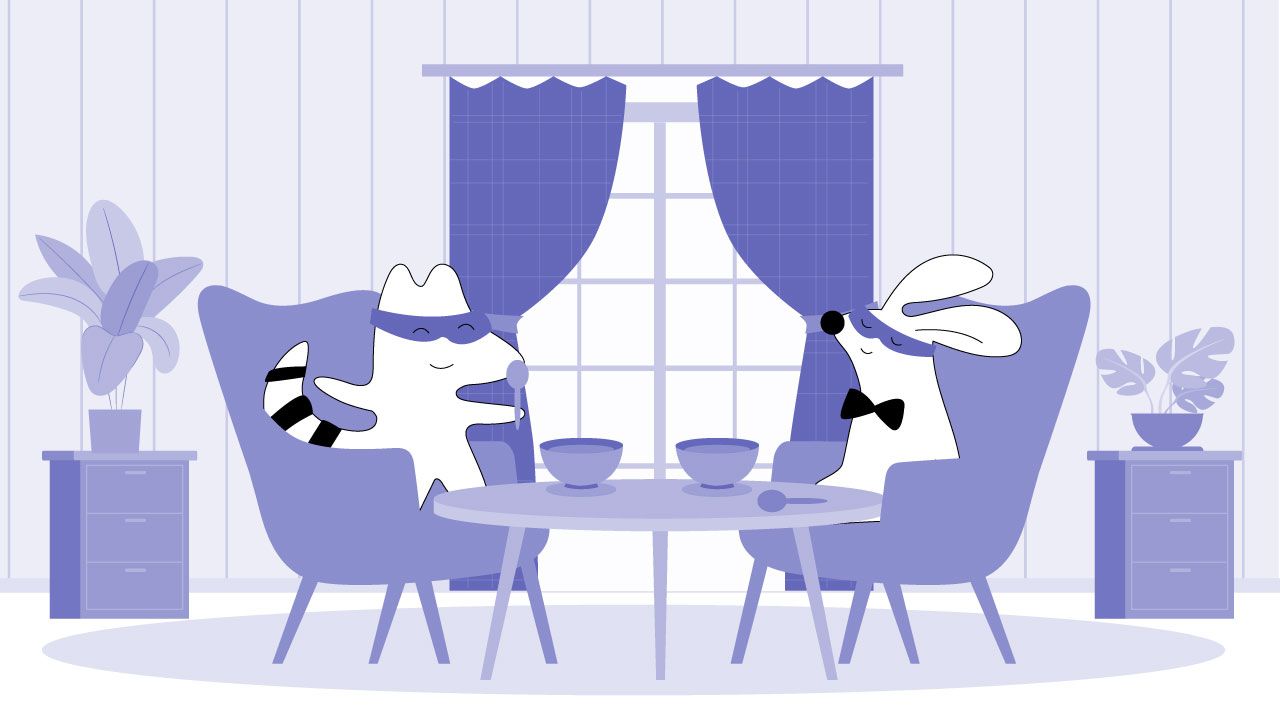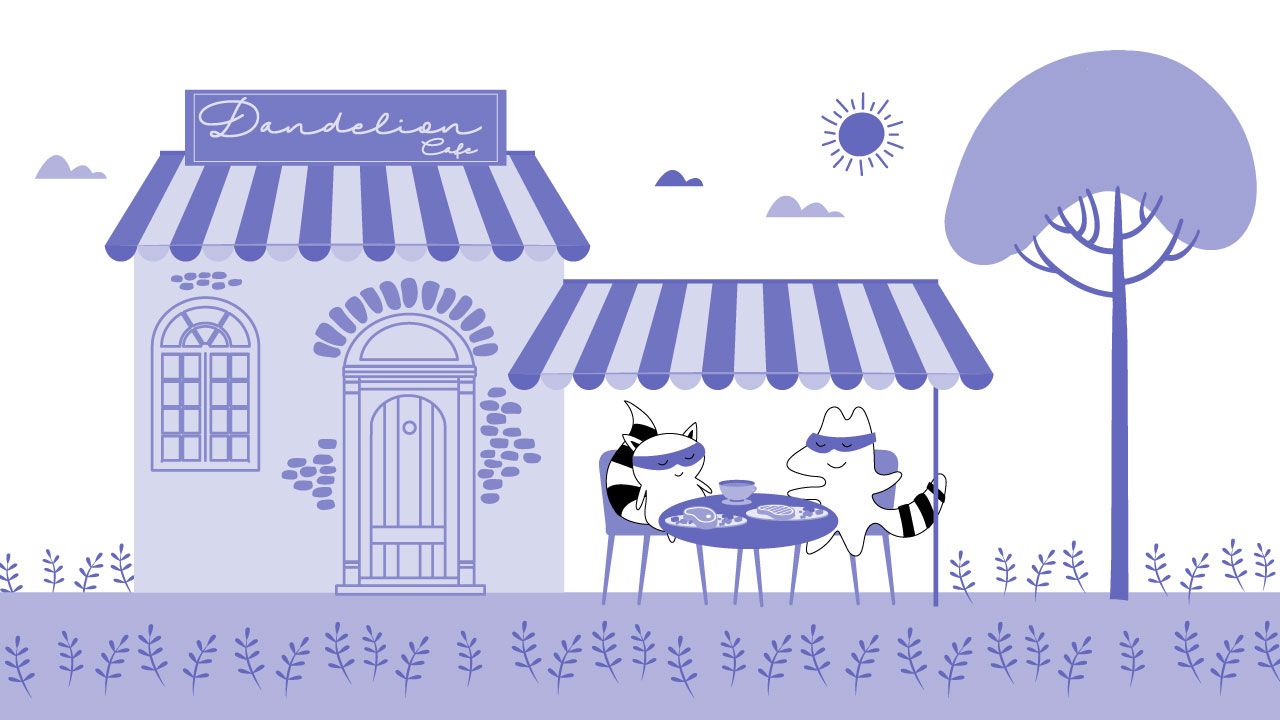
The French are known for their wine, food, and fashion, but there is so much more to French culture than that. Whether you’re visiting France or talking to French people somewhere on the internet, there are many challenges you can come across even during basic daily encounters.
These are, for example: addressing someone correctly, choosing an appropriate topic for conversation, or sticking to basic social politeness. There are many rules for all that, but they can vary depending on the situation and the person you’re talking to. French life is full of details and nuances that foreigners often stumble over – but don’t worry.
To help you get a grasp of French culture and make sure you can fit into French society, we’ll explore some of the main things every person needs to know about France. French culture can be tricky if you are not familiar with it – but thanks to our crash course, understanding it shouldn’t be a problem for you anymore. Read on!
Learn French with Langster
Etiquette is Key in France
Generally speaking, the French are very formal people – even among friends, they usually stick to polite formality. There are exceptions to this rule, of course, but in general, you should avoid being too informal when talking to someone you don’t know well.
For example, using the informal “tu” instead of the formal “vous” is not recommended, as it can be seen as impolite. Likewise, discussing personal topics like finances or religion with strangers is not generally considered appropriate. In France, it is important to be aware of the other person’s feelings and always act with politeness and respect.
On the other hand, even though politeness is the key to French etiquette, if you visit France, you will notice many things that go against this statement. For example, cutting lines is basically the national French sport, so don’t freak out if someone pushes you aside to be the first on the bus.
Another thing you might notice is the lack of punctuality and not very speedy service. This is not considered rude, though – doing everything well and thoughtfully, without a rush, is an important part of French culture. This may not apply to Paris, though, where life is a bit more fast-paced.
The French also love to argue – debates are really ingrained in their hearts. Don’t take it personally – a French person can argue even against a point they agree with, just to make life a bit more interesting.
This is probably where another French rule comes into play: the French often say “no” to a request. However, it doesn’t really mean “no” very often – sometimes, it’s just a quirky play that needs you to convince the other person to do something. Try to provide a few arguments, and your wish may be granted.
Liberté, Égalitié, Fraternité
Liberty, Equality and Fraternity are the three core values of the French Republic, as enshrined in the motto Liberté, Égalité, Fraternité which originated during the French Revolution. They are also some of the main values that French people hold dear, and they have a strong influence on French culture that can be seen in all aspects of life.
Liberty is highly prized in France, and it is considered one of the most important rights a citizen has. The French Revolution was fought in part to defend liberty, and it is still celebrated today. In fact, Bastille Day – which commemorates the storming of the Bastille prison during the Revolution – is one of the biggest national holidays in France.
Equality is another key value in France. The country has a strong tradition of egalitarianism, which dates back to the Enlightenment era. Since then, France has been at the forefront of movements for equality, including women’s rights and LGBT rights.
Today, equality remains an important ideal for French society and can be seen in laws that strive to ensure everyone is treated equally regardless of their background or social status.
Fraternity is perhaps less well known to non-French citizens than Liberty and Equality, but it is no less important to French culture. In France, fraternity is often understood in a broader sense as solidarity between people.
It is the idea that everyone should help and support each other, especially those who are less fortunate. This value is reflected in French society through various social welfare programs and initiatives.
The hate of social injustice and violations of human rights is deeply rooted in French culture, and because of that, a huge number of social movements and protests arise each year. Foreigners may be confused about why so many strikes happen in France, but in reality, it’s just people fighting for what they believe in and executing their rights.

The French Take Family Seriously
The French have strong traditions related to family matters, and they place a lot of importance on family values. In France, you often hear that family is everything – it is the cornerstone of French society and plays a central role in French culture.
When it comes to family, the French are very close-knit, and they often spend a lot of time together. They typically celebrate all major family occasions, such as birthdays, anniversaries, and Christmas, together.
People often maintain relationships not only with their immediate family members but also with extended family, which allows them to learn more about their family’s history and values. Moreover, the extended family often provides financial support to the children.
Gender roles in modern French society are still quite traditional.
French women typically grow up knowing their role within the family and society. They are often taught that they should be beautiful, well-mannered, and modest. This stereotype of the “French woman” can present challenges in further life, since the expectations put a lot of pressure on women.
Nevertheless, the women of France are not afraid to break with tradition and stand up for what they believe in. They are strong, independent, and know who they are – and if someone expects them to fulfil more traditional gender-stereotypical roles such as cooking, cleaning and child-rearing, that’s not their problem.
Today, most French women engage in paid labor, pursue higher education, and climb up the career ladder.
Language Is Important in French Culture
France is a country with a rich linguistic heritage. French is the official language of France, but it is not the only language spoken there. In fact, there are several regional languages and dialects that are still spoken in some parts of the country, such as Breton, Catalan, and Occitan, as well as languages from the former French colonies.
Additionally, immigrant languages like Arabic and Vietnamese are also spoken by some members of the French population.
The French language is an important part of French culture, and the country has a long history of promoting it both at home and abroad. Since 1635, L' Académie Française (The French Academy) has been working on regulating the language, limiting the rate at which the language can change.
The French take great pride in their language, trying to retain a unique French identity in light of globalization and English’s takeover. Because of that, many French people prefer to speak in their own language, even though most of them know English to some extent.
So if you visit France, make sure to speak French when talking to the locals – even if your knowledge of it is quite limited, they will appreciate your attempt.
French Workplace Culture Can Be Confusing
The French workplace can be a confusing and frustrating place for foreigners. This is because it is governed by a set of unwritten rules and customs that are not always easy to understand.
For instance, the French have a hierarchical culture, and they typically follow those in positions of authority. This hierarchy is maintained when it comes to reports or decision-making, and many foreigners (especially Americans) can see it as traditional and maybe even old-fashioned.
Nevertheless, formality and politeness rule the workplace, even when it comes to colleagues – French people will greet everyone in the office in the morning, and even sometimes exchange les bises (kisses).
Work is never placed over anything else, though. The French often see it as something that prevents them from doing what they love. Work is only perceived as a way to earn money, which they can then spend on exciting activities, such as traveling, being with their families, going to new places, or tasting good food.
This is why the French have a generous system of paid vacation time that allows them to take several weeks off each year. Additionally, the French enjoy a long lunch break in the middle of the day to rest as well as mid-time breaks that allow them to rest and catch up with coworkers and plans for the day.

Apart from that, one of the main rules that govern the French workplace is no work on Saturday or after hours.
Food Is One of the Most Important Aspects of French Culture
You may already know that food is an important part of French culture. In fact, the French say that “food is the best way to understand a culture.” This is because food is more than just a means of sustenance – it is a way to express identity, traditions, and values.
When it comes to food, the French have a strong preference for quality over quantity. French dining etiquette stresses the importance of food being enjoyed slowly and savored with friends and family. This is why French cuisine is famous for its elaborate meals that can take hours to prepare and eat.
Food is not the center of the meal, though; every part of the dining process is taken into account, and each is important. Welcoming guests, purchasing the correct products, setting the table, and pairing the food with wine – these are just a few of the many points that make French food culture distinct.
French cooking is recognized around the world, and every French region has distinct dishes that many non-French people are familiar with, such as Boeuf Bourguignon, Coq au vin, or Crème Brulée.

Art and Literature Are Deeply Rooted in French Tradition
France has a long and storied history with arts and literature. Some of the most famous artists and writers in the world come from France, and their work is deeply ingrained in French culture.
Art has always been an important part of French culture, with some of the earliest examples dating back to the Middle Ages. The French have a strong preference for realism and detail in their art, which is evident in the works of masters like Michelangelo, Leonardo da Vinci, and Vincent van Gogh.
French literature has a similarly long and impressive history, dating back to the 10th century. Some of the most celebrated authors in history are French, including Victor Hugo, Alexandre Dumas, and Marcel Proust.
French culture places a great deal of value on both the arts and literature. These forms of expression are seen as a way to explore the human experience and show French values and traditions. They are also an important part of preserving France’s cultural identity in a world that is increasingly influenced by globalization.
Fashion Is the National Treasure
The French are known for their love of fashion and for their sense of style, which is a deeply entrenched part of French culture. In fact, the French are considered to be some of the best-dressed people in the world, and France is often considered to be the birthplace of modern fashion.
French designers like Coco Chanel and Yves Saint Laurent have brought international acclaim to France with their iconic designs, and many modern French fashion houses are famous around the globe, such as Chanel, Christian Dior, Hermes, or Louis Vuitton.
French fashion is known for its love of luxury and high-quality materials, use of color and patterns, and mix-and-matching different styles to create a unique look. French style has been heavily influential around the world and has garnered immense popularity in recent years.
Many French people take great pride in their fashion sense and consider it to be an important part of their identity. Clothing and accessories are seen as a way to express oneself and showcase one’s taste and style. This adds to their distinct je ne sais quoi – a certain flair or style that sets them apart from the rest.
French designers are some of the most sought-after in the industry, and their clothes are highly coveted by celebrities and everyday people alike. Paris, in particular, is considered to be one of the most fashion-forward cities in the world, and is known for its haute couture, “high fashion.”
The French Have a Slow Pace of Life
The French have a well-known saying: “la vie est belle” or “life is beautiful.” This phrase encapsulates the French attitude towards life, which is to enjoy it and savor every moment.
Because of that, the French are notorious for their slow pace of life, which can be quite a shock to visitors who are used to a faster tempo. In France, time is not as important as it is in other cultures. The French prefer to take their time when it comes to everything – from eating to working to enjoying leisure activities. They believe that this is the best way to savor life and experience all that it has to offer.
This slower pace of life is one of the things that makes France such a charming and appealing country. It allows people to relax and enjoy the simple pleasures in life, encouraging creativity and reflection, and giving time to think and explore new ideas.

Being Proud Is a National Trait
The French are a proud people, and this is evident in everything they do. From their art and literature to their fashion and cuisine, the French take pride in their traditions and values, food, language, history, accomplishments of their people, and other distinct parts of their culture.
This sense of pride is a strong national trait in France, and it is seen as a sign of respectability. The French are often considered to be arrogant by others, but this is because they hold themselves to a high standard and are not afraid to show it.
This French trait is often perceived as funny by other people – after all, is being the place of origin of French fries really a reason to be proud? (Yes, if you ask us.) Nevertheless, pride in France is seen as a key ingredient to success.
The French believe that if you’re not proud of your work, then you’re not going to put in the effort necessary to be successful. This determination and sense of self-belief have helped the French become one of the most successful nations in the world.
Being proud is also seen as a way to show one’s patriotism and love for France. People are also proud of their traditions and they take great joy in upholding them. They love celebrating their national holidays and events – just look at the photos from the celebrations of July 14th, and you will see the extent of it.
French Culture Has Much More To It
There is so much more to French culture than what we’ve mentioned in this article. From their love of food and wine to their slower pace of life, the French have a lot to offer visitors and tourists.
If you want to learn more about this fascinating country and its people, be sure to explore further. There are many books, articles, websites, and other resources that can help you do just that. And who knows? After learning more about French culture, you may even decide to visit France yourself – or even learn French.









